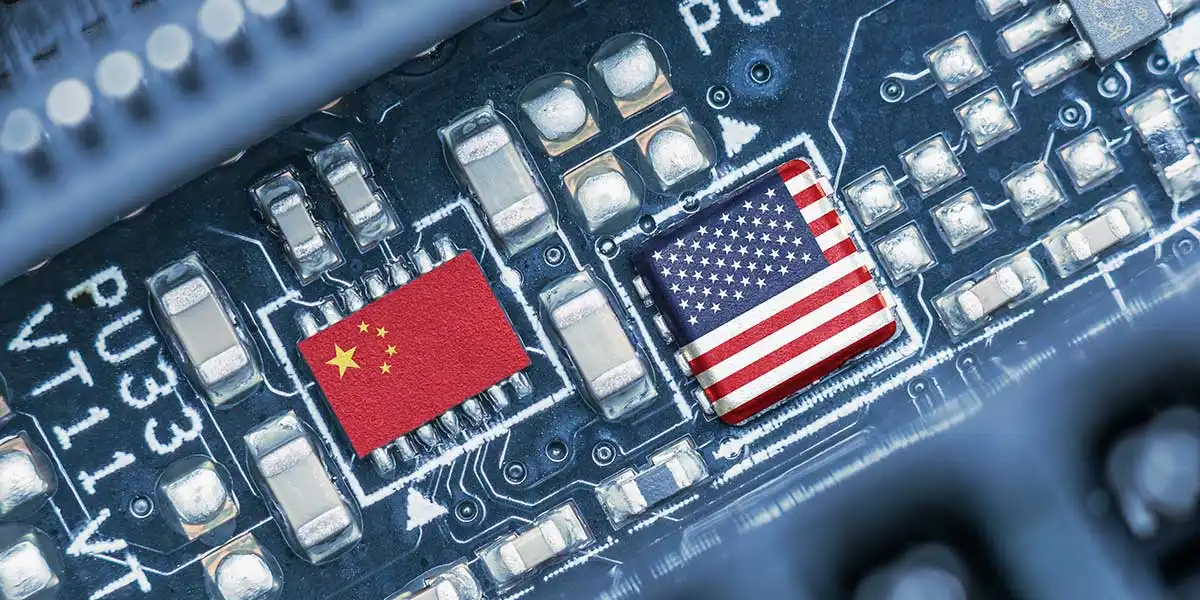
Apr 23, 2025
The global trade environment is undergoing a dramatic transformation. The re-emergence of tariffs as a primary economic tool—especially among major economies such as the United States, China, and the European Union—is reshaping international commerce. For the semiconductor and electronics industry, this marks a significant withdrawal from decades of globalization toward more nationalized, protectionist policies.
This shift is forcing companies to reconsider their global strategies, especially around production and sourcing. It also introduces new layers of complexity in an already dynamic industry.
The first half of April brought multiple policy shifts that caught industry leaders by surprise. Below is the timeline.
These developments have intensified trade uncertainty and left companies struggling for clarity on upcoming policy shifts.
The new U.S. tariff policies, particularly targeting semiconductors and electronics, have prompted varied countermeasures from key countries, especially China and the European Union.
China:
China has firmly stated that it does not seek conflict but is prepared to defend itself if necessary. China has restricted exports of key rare earth minerals and magnets essential to semiconductor manufacturing, electric vehicles (EVs), and aerospace and defense technologies. These materials are critical in producing wafers and components, and the restriction may significantly increase costs and supply instability for global players.
European Union:
As of April 14, 2025, the EU approved retaliatory tariffs on €21 billion (USD 23.2 billion) in U.S. goods in response to President Trump’s 25% steel and aluminum tariffs. While these tariffs have limited direct impact on the semiconductor industry, they may indirectly raise equipment and construction costs and heighten trade tensions, potentially affecting tech supply chains and investor confidence.
In response to growing trade risk and geopolitical uncertainty, many companies are reshaping their supply chains. The U.S. CHIPS Act has further accelerated investment in domestic chip manufacturing, aiming to reduce dependency on foreign suppliers—particularly in Asia.

Firms such as Intel, Micron Technology, and Nvidia stand to gain from this shift. With AI, edge computing, and high-performance graphics driving demand, reshoring is no longer just about supply chain security — it’s a strategic necessity.
To stay competitive in this evolving environment, companies must adopt a more resilient and agile approach to operations.
Recommended Actions:
The era of low-cost, high-speed global logistics is evolving — strategy must evolve with it.
BCC Research provides trusted, data-driven intelligence that helps semiconductors and electronics organizations navigate global trade volatility. Our insights are designed to support decision-makers as they assess market shifts, cost implications, and competitive positioning in a changing world.
Our Services Include:
In a world of growing trade uncertainty, BCC Research offers a steady hand to help you turn disruption into direction.
Keep an eye out for upcoming industry-specific insights on the ongoing trade war.
.png)
Austin is an experienced professional with nearly a decade of industry experience in research and analysis, specializing in Information Technology. He has conducted extensive research and provided comprehensive syndicate and custom reports on the developments and application of information technology across multiple industries, for both international and domestic clients. He exhibits exceptional analytical abilities and strategic thinking and has contributed significantly to the team. Academically, Austin holds a master’s degree in Marketing and IT, as well as a bachelor’s degree in Electrical and Electronics.

Biophotonics: Technologies and Global Markets (PHO024B)

The global demand for cutting-edge materials continues to rise, and at the foref...

Polyester resin is critical in various industries—from construction and automoti...

We are your trusted research partner, providing actionable insights and custom consulting across life sciences, advanced materials, and technology. Allow BCC Research to nurture your smartest business decisions today, tomorrow, and beyond.
Contact UsBCC Research provides objective, unbiased measurement and assessment of market opportunities with detailed market research reports. Our experienced industry analysts assess growth opportunities, market sizing, technologies, applications, supply chains and companies with the singular goal of helping you make informed business decisions, free of noise and hype.